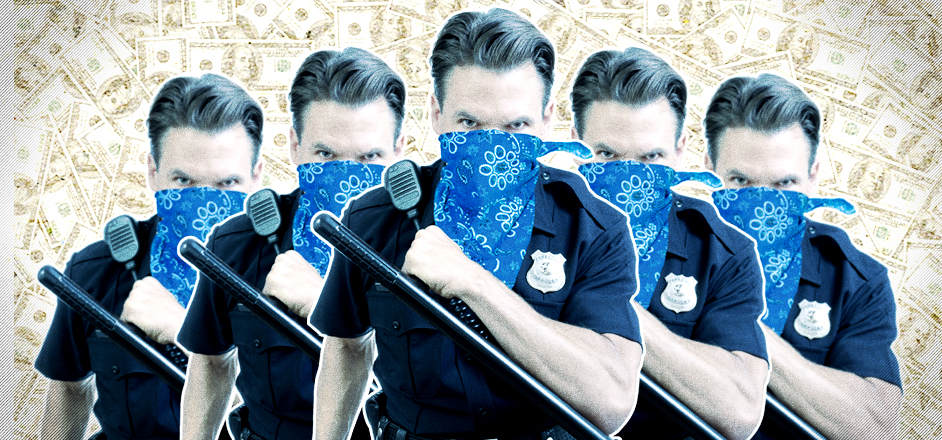In today’s hyper-tense relationship between civilians and police, one occasionally has to ask: Who’s the real bad guy here?
Is it the criminal? Or is it the cop?
A little thing called “civil forfeiture” makes a solid case for the latter. This controversial and little-known legal process allows authorities to confiscate unlimited property from civilians. With very little oversight and for hardly any reason at all, cops can legally fleece the unsuspecting out of drugs, cash, cars, whatever.
It’s such an obvious abuse of power that even Bloomberg News compares police who abuse the process to “self-funding armed gangs.”
It’s not wrong. Since 2007, according to a new report by the Office of the Inspector General, the DEA has seized over $4 billion, most of it from innocent people who were never charged with a crime. “Only 44 of the 100 (analyzed) seizures were connected to or advanced a criminal investigation,” it states. The Washington Post also claims that in 2014, law enforcement officers took more property from Americans than burglars did.
“People are amazed that this happens in the U.S. — it sounds like North Korea,” says Darpana Sheth, a lawyer for the Institute for Justice and director of its nationwide initiative to end civil forfeiture abuse.
A spreadsheet provided by the Denver Police Department shows just how bad it can be. Officers over the years have taken from suspected criminals an array of goods: Jeep Wranglers, Honda Pilots, Porsche Panameras, 14k gold chains, diamond-encrusted Johnny Dang gold watches …
And what did DPD do with all this stuff?
It’s used the forfeiture liquidations to buy WiFi equipment, printers, Blu-ray duplicators, CrossFit classes, digital cameras and even OtterBoxes for the department’s cell phones. The organization spent more than $1 million of mostly innocent dollars on this kind of stuff in 2015. And that’s just in the city of Denver.
But change is coming, and swiftly. Eighty percent of people support reform, Sheth says. “Either you’re a person who doesn’t know what civil forfeiture is, or you know about it and you’re against it.”
More than 20 states have already passed reform bills. In Colorado, Rep. Leslie Herod plans to introduce a bill that might change the laws for good. “If you are not convicted of a crime, you should not have to forfeit your property,” Herod says. It won’t be an easy bill to pass though, because cops like, and need, that easy stream of revenue. They’re also well-represented in the statehouse. “It’s a pretty tough lobby to crack,” she adds.
There’s also currently a debate about whether the feds are going to crack down on legal weed in the future. If it does, there could be a lot more seizures of personal property without any oversight.
“That’s a huge cache of funds,” John Krieger, a lawyer and spokesman for the ACLU of Colorado, says. “If the government starts to do overnight raids of every marijuana dispensary in the state, you’re talking about a large amount of money and property that could be quite profitable for the federal government.”
Civil forfeiture is another reminder that, when it comes to crime, the government is stacking paper as much as anyone else in the game. Oftentimes, it’s the boys in blue out there committing the offenses they’re put in place to protect.



Leave a Reply
You must be logged in to post a comment.